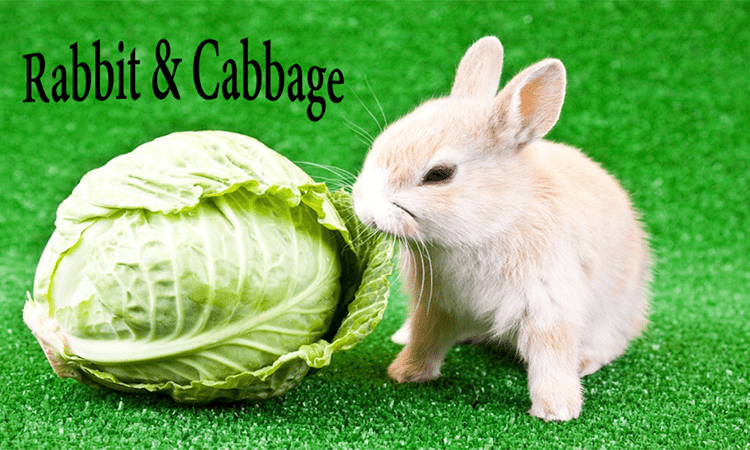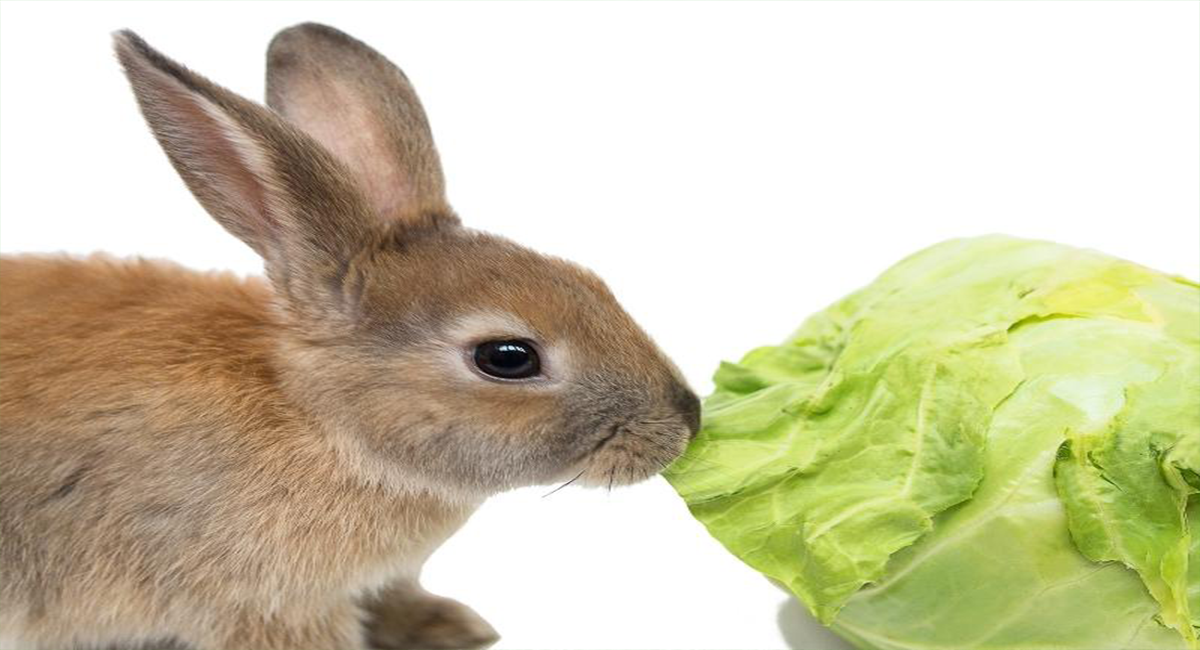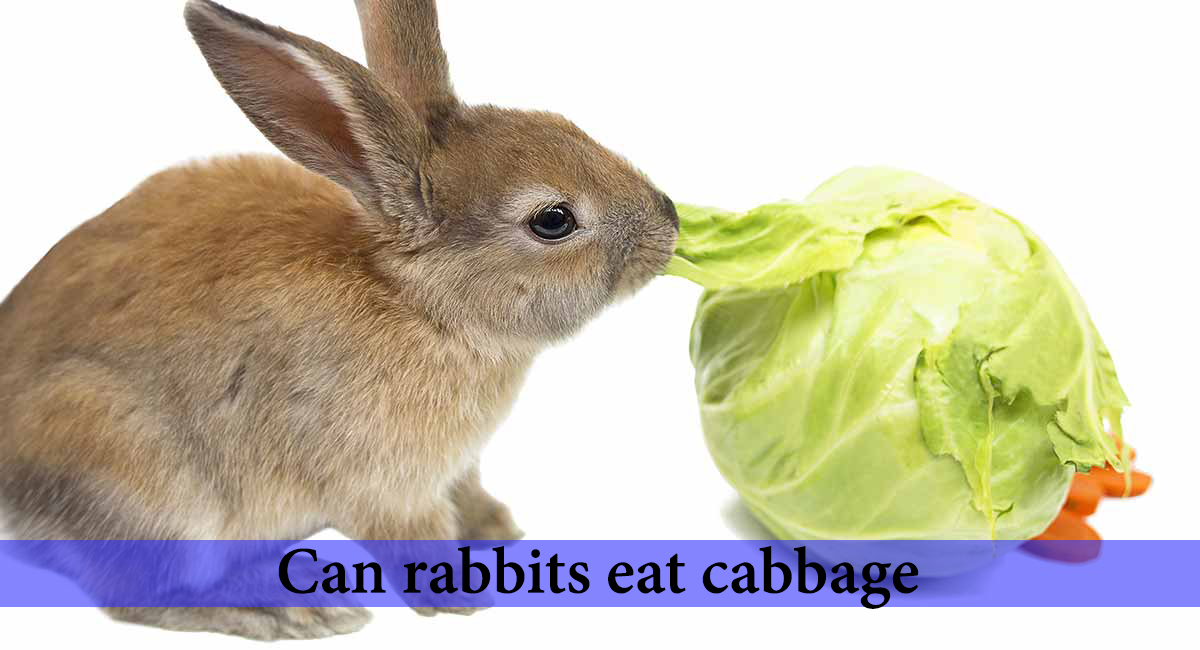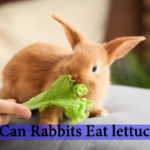We love our pets very much and would want to treat them like our own children. That is why we do everything together with them such as eating, sleeping, walking, playing etc.
When we eat food, we also offer the same to our pets which can be risky for them. One of the most frequently asked questions about this is Can rabbits eat cabbage? In this article, we will address this query in detail and other related frequently asked questions.
Can rabbits eat cabbage?
Yes, you can feed cabbage to your rabbits. They are encouraged to include it in their meals because of its many health benefits. In fact, some bunnies love eating cabbage since it has a leafy and crispy texture although not all of them.
Therefore we should consider their preference too whether they like it or not. Don’t worry if they didn’t take any bite of the cabbages. Give another alternative vegetable that they love most and have fun eating. Also, many people ask can a bunny eat cabbage so the answer is the same. Yes, a bunny can eat cabbage. Let’s know more about rabbits and cabbages here.
What are the benefits of giving cabbage to rabbits?
Rabbits’ bodies need high-fiber food, which helps run their digestive system smoothly, and green, leafy vegetables are good sources of this. Cabbage is a perfect example of a green, leafy vegetable. Cabbage contains calcium, which helps in the regeneration of their teeth.
Apart from this, it also contains vitamin K, vitamin E, magnesium, potassium, zinc, and phosphorous, which help in building and developing a healthy body for rabbits.
What kind of cabbage is good for rabbits?
You can feed your rabbit any type of cabbage as long as he likes it. However, certain cabbages have higher nutritional contents than the rest; for instance, dark green leafy types of cabbages are richer in nutrients compared to plain white ones.
There are many types of cabbage available in the market. Some of the common and easily available kinds of cabbage are purple cabbage, White cabbage, spring greens, savoy cabbage, and green cabbage Among them Green cabbage, spring greens, and savoy cabbage are highly recommended for rabbits. Cabbage also contains antioxidants, which help prevent cell damage and certain diseases.
How much cabbage can we give to our rabbits?
Rabbits, like humans, never want to stop consuming what they love best. Everything should be taken in moderation because too much of anything is harmful to us.
This concept also applies to eating. When there is an over-consumption of cabbages, it can damage your bunny both internally and externally; therefore we should mind about how many they take. We must watch their eating habits.
Now at first days while starting on this new vegetable with Rabbits should begin with small portions: one leaf for little bunnies or small-sized ones for adult rabbits.

Cabbage should not be more than fifteen percent (15%) of their diet otherwise it starts showing inverse effects for eating a lot of them.
When not to feed cabbage to our rabbits?
If there are small baby rabbits, then we must avoid feeding cabbage to them because it may harm their digestive system due to its high sulfur compounds that lead to diarrhea or gas.
In fact, we should avoid giving any fruits and vegetables until they reach 12 weeks of age. Also, when your rabbit does not like it and is always trying to avoid eating it, not forcing them to eat it. Simply switch to other alternatives.
Try to avoid giving old cabbage to them. Prefer only fresh cabbage because they like fresh veggies. Try to clean unfinished or remaining foods from the cage.
What are the adverse reactions that can be seen in rabbits after eating cabbage?
- It causes gas and bloating, as the rabbit has a sensitive stomach.
- Diarrhea is also seen in rabbits as an adverse reaction to eating cabbage.
- Loss of appetite and pain happen sometimes.
- It might affect their thyroids and reproductive organs.
- Runny stools and GI upsets are caused by excess water intake. (some type of cabbage has a lot of water).
- Lethargy is also a sign of an adverse reaction.
- It causes excessive itching on the skin.
- There is an increase in the licking of skin or paws.
- Anorexia
What are the Alternatives of Cabbage?
If you are looking for other foods for your rabbit instead of cabbage, there are a lot of options. For instance, among these are leafy vegetables like romaine lettuce, green-leaf lettuce, red-leaf lettuce, butterhead lettuce or Boston lettuce, pak choi or bok choy, and kale (but in moderation as it contains high levels of calcium).
Some fresh herbs that can be included in their meals include parsley and coriander(cilantro), basil leaves or sweet basil, dill weed, and mint leaves. Different kinds of vegetables have different nutrients such as carrot roots (in small amounts because they are high in sugar), bell peppers (green, red, or yellow ones), broccoli including its leaves and stems, Brussels sprouts or brussel sprout heads, celery without the strings pulled off, cucumber without seeds added and zucchini which is also known as courgette.
Cruciferous veggies like broccoli stems with florets still attached to them, Brussels sprouts head with leaves surrounding it completely or all around and kale (don’t give too much) may serve as substitutes too. It is good to know that root crops like parsnips, and radish bulbs/roots should only be given occasionally since they contain lots of calcium which could lead to stones if consumed excessively, especially by female rabbits.
Also, fruits such as apples (remove both seeds & core before offering), bananas (only a few slices ), and berries like strawberry, raspberry & blueberries can be offered sparingly too.
Remember: gently introduce new food items one at a time into their diet while ensuring freshness through proper storage methods plus cleanliness during preparation processes; always rotate different veggies on a daily basis so that all essential nutrients are supplied adequately thus preventing any nutritional imbalance from occurring within their body systems.
FAQ
Can rabbits eat red cabbage?
Yes, you can give rabbits red cabbage. Nevertheless, they must be given in small amounts and included as part of a diverse diet. Check your bunny’s reaction for any signs that it might not agree with them.
Can rabbits eat Napa cabbage?
Yes, Napa cabbage is one of those things that you can safely give to your rabbit. Similar to other varieties from the same family such as Chinese or Savoy cabbages; these should all be provided slowly and steadily so that no tummy upsets are caused in bunnies’ delicate stomachs.

Can rabbits eat cabbage core?
Some of the cabbage core can be eaten by rabbits if you remove the tough bits. The middle part is a choking hazard for them as it takes time to digest. But one must give only a small portion because it may lead to choking problems too.
Can rabbits eat raw cabbage?
Yes, rabbits can consume fresh greens such as cabbages. This should however be done in moderation so as not to interfere with their digestive system which could lead to stomach upsets.
Can rabbits eat cooked cabbage?
Cooked cabbages should be kept away from bunnies at all times since boiling reduces its nutritional content making it less suitable for their digestion.
How much cabbage can rabbits eat?
Cabbage servings for pet bunnies ought to remain small like treats or supplements within their staple food with an average frequency of once or twice per week being recommended.
Summary
In short, rabbits can eat cabbage, but in moderation; otherwise, it starts showing its bad face, i.e., it starts increasing health problems in our rabbits. We should not feed cabbage to baby rabbits because they don’t have a strong digestive system to digest leafy veggies.
If you give other brassicas to your rabbit as food, then avoid giving cabbage. Don’t stick with the same vegetable; try to give other veggies too, for better taste. Rabbit diets are very important for their physical as well as inner development.
If a balanced diet is given to them, then it helps them in recovering from any diseases. So, diet plays an important role in their health life. At last, if you have more concerns about your pet’s feeding, then You can visit your nearest veterinarian and contact them about this.


